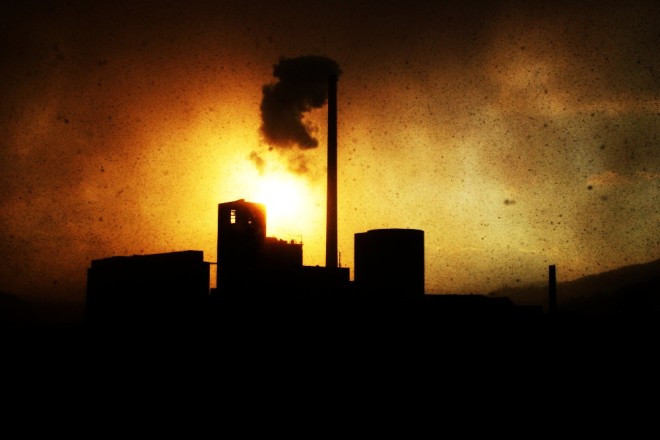In Response to Perlblog: Why Divestment is the Real Activism Through Capitalism
[This op-ed is written in response to Steven Perlberg’s article, No, Wash U Shouldn’t Divest From Fossil Fuels — Yet]
First, let’s get our facts straight. Contrary to what Steven Perlberg’s article suggests, the divestment campaign does not mandate investments in renewable energy, such as a “rural Oregon algae factory,” as he so colorfully puts it. We only ask that Wash U remove fossil fuel companies from its endowment portfolio and choose other profitable options. Perlberg also makes the dubious assertion that this policy would be accepted only as a trade-off for cutting financial aid to students. If divestment would necessitate budget cuts, which is certainly not a given, we would never support that those cuts come from financial aid. His only real objection to the idea of divestment is that the university has a responsibility to its students to invest “well.” We completely agree, we just think that “investing well” should not just mean investing for maximum short term gain but rather, investing well—with some sense of responsibility for the further consequences of those investments along with financial and moral foresight.
Perlberg says that this campaign is led by a “hysteria over a perceived injustice without any meditation on cost, the outside world, or our own privilege and role.” I also feel that privilege is at the heart of the matter; in fact, it is why I feel compelled to do something about climate change. The fact is that the droughts, disease, and food and water shortages resulting from ever-worsening climate change will overwhelmingly hit the poorest populations of the world the hardest. While the United States—and much of the West—will have to deal with severe economic costs and extreme weather, developing countries located in warmer climates will bear the brunt of the famines, epidemics, and political instability arising from climate change. We have already begun to see that the most vulnerable populations, from working class people in New Orleans to subsistence farmers in East Africa, have the least resources to recover from climate impacts that destroy homes, crops, clean water supplies, and spread disease (It is also worth noting that even excluding climate change, the detrimental effects of carbon-producing industries such as air and water pollution overwhelmingly impact the health of rural and urban poor in the U.S. and worldwide).
For the warming of Earth to stay below an increase of 2 degrees Celsius, an amount which 167 countries have declared is the highest tolerable limit to global warming, global emissions must peak and start to fall in 2016 (Lovejoy, “The Climate Change Endgame,” NYT, 22 Jan. 2013): that’s three years from now. Fossil fuel companies currently have in their stated reserves enough fuel to create five times the amount of carbon emissions expected to warm the earth by two degrees. (McKibben, “Global Warming’s Terrifying New Math, Rolling Stone, 19 July 2012). So no, I do not feel that our awesome Green Hall and sweet research labs are enough to address this issue with the kind of urgency and commitment it needs, and the fact that Perlberg acknowledges that this problem calls for “structural reform” makes me think he already knows it.
This article seems to suggest that the mature response to climate change would be to write in a daily gratitude journal about how lucky I am to go to Wash U and continue to passively wait for changes to come that needs to happen now. Or, that I should exercise his depressing version of “activism through capitalism” by keeping my mouth shut, withdrawing from Wash U, and refusing to enroll in any college that doesn’t already happen to conform to my beliefs. Really, that’s the model for change we’re going with?
There are plenty of witty shots to be taken at liberal college students and their ideals; the idea that students could possibly affect change isn’t one of them. A quick look at the history of the most influential social movements of the past sixty years, from Vietnam and Apartheid protests to the Civil Rights Movement, will tell you that the idea that student involvement can have a real impact is not some liberal fantasy, although treating it as one is a great way to encourage complacency.
The reason the idea of divestment inspires me is because it’s a real model of activism within capitalism. It is a national campaign led by the most prominent climate change activist in the world, as well as an innovative and viable strategy for sparking the kind of change we desperately need. Divestment recognizes that our privilege as students is also our power. Being a student gives us a say in an influential institution, the university that we pay to attend. For most of us, who have yet to launch congressional careers or make millions, it’s the most powerful point of influence at our disposal. And, yes, it can be powerful. If universities across the country are pressured to divest, it would be hard for fossil fuel companies and politicians to ignore the kind of sentiment (and economic pressure) that represents. That’s a form of market activism that actually gives me some hope.
It’s true, we are privileged to go to Wash U. We are also privileged to live in the most powerful country in the world. I don’t buy that the responsibility that comes along with this privilege is simply to be grateful and thank our lucky stars that we won’t be living in a developing country as the effects of climate change escalate. Or to insist that maintaining our privilege is more important than taking a realistic, long term view of what it might cost. We can use the privilege we have right now to effect change on behalf of those who do not have the opportunity to do so. Taking part in the divestment movement would be a great start.
